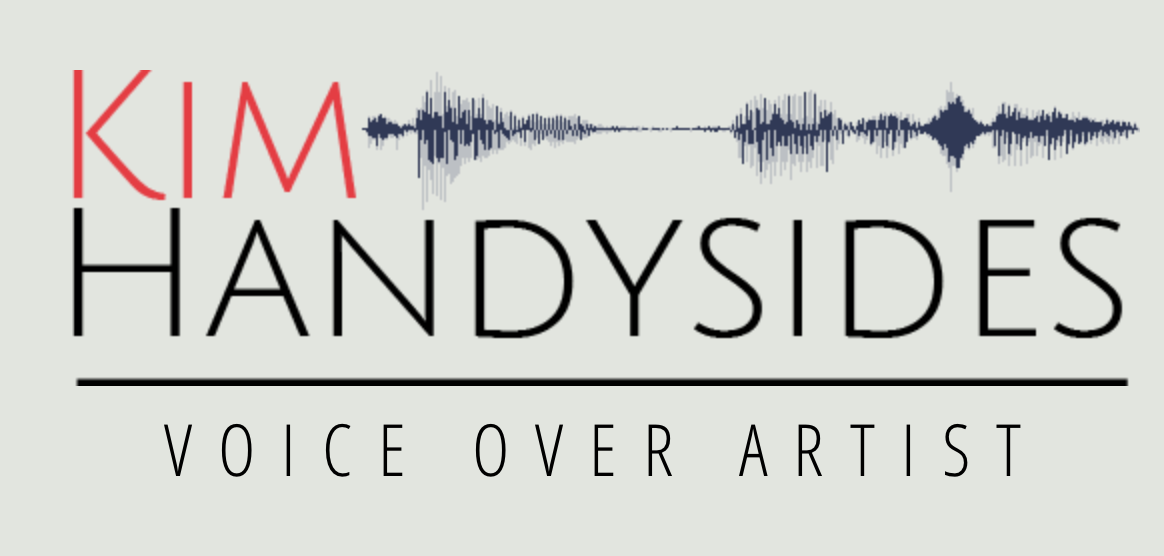5 Simple Reasons You Don’t Get Chosen for Voiceover Work
By: Kim Handysides
From: Kim Handysides, Voiceover Artist
_________________________________________________________________________________
One of the services I offer in coaching voice over is a deep dive into why a talent is not booking in a specific genre. Often the reason you don’t get chosen for voice over work is a simple fix. Others take more time and skill. Here are five of the more common reasons and tips on how to overcome them.
#1 Not Matching the Specifications in the Description
For example, if you’re 60, and the spec for the voice over job says 18-24, be honest. Do you sound like your age? A lot of people don’t. Some do. It’s more than a vocal thing. It’s also an attitude thing. Sometimes the spec is more about the target the client is hoping to reach and less about the voice actor’s age. Know your voice very well and which lanes you can swim in and which you’re better avoiding.
Lately, voice casting specs seem to provide less and less information, usually defaulting to “real person, conversational, authentic, believable, etc.” So, if they depart from this new norm and give you a spec like upbeat, down to earth, nostalgic, or young…then follow it! When you are on the hunt for voice over work, showing that you understand the specs and can follow directions is one of the most important skills to showcase.
#2 You Don’t Understand What You’re Reading
Connecting, understanding, and interpreting the script is a big part of any actor’s job. You aren’t going to book if you skim the script and then blurt it into the microphone. The client, the account manager, and the creative team have spent a lot of time (weeks, months perhaps) processing and package that message. Your superpower needs to be breaking that message down to its most essential parts and presenting it on a deep level as if it was newly minted in your own head. Wrap it up in 2-3 words.
Move forward from there. In my private coaching sessions, I isolate a script analysis method that helps actors fast track their way to really grasping the meaning and deeply connecting with the underlying message. Get in the habit of scanning and sorting out what the main message is. Then, make it your own.
#3 Low-Quality Sound
You may be an unparalleled talent but if your sound sucks you aren’t going to get chosen for voice over work. One of my agents laments that it’s not fair, but it is what it is. People will assume the sound quality you send in an audition is the sound quality you will record for the finished job. If you gave a stellar performance, the casting director might feel a pang of regret about it, but they will not select you.
Don’t forget, they are also looking for talent that will make them look good to those that hired them to cast. Particularly in today’s high-technology climate, voice over artists are expected to be able to record top-quality voice over from wherever we are. Both your sound chain and your room must be of high quality. If you are unsure or have had negative feedback about your sound quality, consult with a sound engineer. Roy Yokelson, George Whittam, Dan Lenard, Tim Tippets,David Scott, and Larry Hudson are all people I’ve worked with and trust.
#4 Acting is Off the Mark
Effectively interpreting the script is half the battle. The other half, as far as I’m concerned, is immersing yourself fully in the imaginary world that will help you bring it to life. I find it’s a study in connection. In a Backstage interview with directors, the importance of acting was highlighted by multiple interviewees. “Study acting. All good voice acting has, at its base, a character, an action, and circumstances.” Tom Keegan, talent director.
“Some people may have an interesting voice quality, but if it’s not backed up with acting chops, it’s really hard to interpret copy. My first piece of advice is to take some acting classes. Then go to classes or a coach for voice over; it’s a unique beast!” Pamela Fahey, commercial voiceover casting director.
#5 You Are Late to the Game
Getting your auditions submitted early is important. The person casting will find a benchmark among the first few sent in. Psychologists actually call this “competitive benchmarking.” Every audition that casting directors listen to after the benchmark they’ve identified will compete against the best out of the first few. But the benchmark only has to beat the first 5 or 6, so you’ve got to be fast.
Coaching Can Help You Get Chosen for Voice Over Work
When I coach voice over and when I work, I use shortcuts to get to the best performance quickly. It is critical to have your voice over acting skills ever-ready and sharp so when an audition comes in you can quickly get to where you need to be to catch the voice seeker’s ear and have a better chance of being heard.
Do you have some advice for getting gigs? Share them here!









